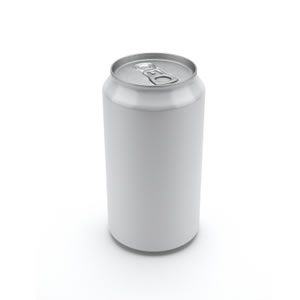My brain has been through a lot. When I was an infant, it was attacked by pneumococcal meningitis causing deafness, severe migraines throughout my childhood and learning impairment.
When I was about twenty years old, my brain was smashed by a stage light. It fractured, and dented my skull causing acute and long-term brain damage. I haven’t taken very good care of my brain.
After effects of meningitis include:
- Memory loss / difficulty retaining information / lack of concentration
- Clumsiness / co-ordination problems / dizziness / loss of balance
- Residual headaches / neck pain
- Deafness / hearing problems / tinnitus
- Learning difficulties ranging from temporary learning deficiencies to long-term mental impairment
- Weakness / paralysis or spasms of part of body (if permanent, sometimes called cerebral palsy)
- Photophobia / increased sensitivity to lights, sounds or distractions
- Mood changes / feeling sad or angry for no reason
- Irritability / having a low tolerance for frustration
- Changes in sleep patterns / sleeping a lot more or having a hard time sleeping
- Speech problems
- Loss of sight / changes in sight
After effects of traumatic brain injury (TBI) include:
- Memory loss / difficulty retaining information / lack of concentration
- Slowness in thinking, speaking, acting or reading
- Getting lost or easily confused
- Clumsiness / co-ordination problems / dizziness / loss of balance
- Residual headaches / neck pain
- Learning difficulties ranging from temporary learning deficiencies to long-term mental impairment
- Mood changes / feeling sad or angry for no reason
- Irritability / having a low tolerance for frustration
- Changes in sleep patterns / sleeping a lot more or having a hard time sleeping
- Speech problems
- Blurred vision or eyes that tire easily
- Loss of sense of smell or taste
- Ringing in the ears
I’ve been blessed to have both meningitis and a traumatic brain injury. Note how many of those after effects are the same or similar. I’ll never be a proper ninja.
As an added bonus, I’m more likely to develop Alzheimer’s, dementia, Parkinson’s disease, cerebral palsy, and other brain disorders that become more prevalent with age. But wait, that’s not all! We’ve also thrown in a likelihood of a lowered life expectancy. Yay me.
Today, we’re going to talk about what it’s really like to experience brain trauma, particularly, the speech and language part of it.
For the most part, after my TBI, I felt like I was speaking normally. Although, sometimes, I couldn’t remember specific words or I’d get stuck in the middle of a sentence and forget where that sentence was going. These are just a few of the brain disorders I experienced, which to varying degrees, have all improved over time. It was a full-time job learning to speak and think properly again, and I still experience some of these things from time to time.
Acquired verbal apraxia
Acquired means it wasn’t developmental, but the result of a brain trauma. Verbal apraxia, also called verbal dyspraxia, is a speech disorder in which a person has trouble saying what you want to say correctly and consistently. It is not due to weakness or paralysis of the speech muscles, but to a neurological condition such as TBI or a stroke.
My speech therapist would have me repeat a sentence multiple times, for example: “I am the sun god, Ra.” And it would come out, “Yammer raisin dog.” The next time I said it, it would be, “I have the Sunday god.” The errors were not consistent. It was frustrating to say the least.

Image from Wiki.
Apraxia also has the fun benefit of being aware that we didn’t say the right word, then trying to correct it multiple times, and each time, getting it more mangled. “I enjoy speech therapy,” turns into, “I enjoy speech parity, piracy, puppy, charity, kerosene, Cherokee, parakeet.” We repeatedly try to correct the word we know we said wrong and just make it worse until it devolves into puddle of melted letters at our feet.
I was never the sun god.
Many years later: I still do this. I’m not as bad as I was, and nowadays, I don’t have trouble forming the words like I once did, but I still do the repeating the wrong words several times thing, though these days, the words aren’t quite as random.
Fluent Aphasia
Also known as receptive aphasia, Wernicke’s aphasia, or sensory aphasia. People with fluent aphasia form words easily, but unfortunately, they aren’t always the right words, which is why it’s often called “jargon aphasia” or “word salad.”
Fluent aphasia can range from sentences with just a few incorrect or nonexistent words to total rambling nonsense, which makes complete sense to us, but sounds like gibberish to everyone else, because it is.
You could ask someone with fluent aphasia, “What’s your favorite food?” and get the answer: “The bright seven bird on the disco elephant, before twirling pirate in the meadow. Isn’t snowflake fearless? I tread blue banana babies.”
Many years later: I still do this. If I’m distracted or tired, I will speak a sentence and the person I’m talking to will wonder what the hell I’m even talking about. “What do you mean, ‘the banana babies fly at dawn?’ I asked you if you wanted iced tea.”
I can write gibberish better than most people. That example above took absolutely no time at all. I just typed it as I typed this sentence here, as if it made perfect sense. It’s scary how in touch my brain is with gibberish. It’s how I can write posts like this and this and this.
Paraphasia
Paraphasia is the result of damage to the language processing functions of the brain and it produces unintended syllables, words, or phrases during speech. It occurs most commonly in people with fluent aphasia. There are three different kinds of paraphasia.
Literal paraphasia (also called phonological or phonemia) is where part of a word is left out or some sounds are substituted for others. For example, to this day, every time I type “moves,” it comes out “movies.” Literal paraphasia is also responsible for me saying things like “respible” instead of “responsible.”
Verbal paraphasia is when a word is completely replaced with another one in the same or similar vein. I have to be very careful when ordering food. I often say “large” when I really mean “small.” I once asked for no meat on my cheeseburger instead of no onions. Verbal paraphasia is respible [sic] for a lot of wrong orders and confused wait staff. Oops.
The last category is neologistic paraphasia, when you can’t remember the name for something, so you make up a new one. I experienced this form of paraphasia least of all of them, but I am pretty sure that I had some neologisms for things. I just can’t remember what they were now.
Paraphasia should not be confused with “eggcorns,” which are erroneous but logical alterations of a misheard word or phrase, such as “ex-patriot” instead of “expatriate.” Paraphasia isn’t logical.
Many years later: I still experience verbal and literal paraphasia, just not as much and as often as I did right after the accident. It happens most when I’m tired or distracted.
Anomia
Anomia (also called dysnomia, nominal or anomic asphasia) is an inability to recall proper names and words for objects. Someone with anomia generally speaks fluently and has no problem with grammar, but has trouble finding the right word. Sometimes, we substitute a word for a similar one, such as “telephone” instead of “television.” It often occurs in patients with fluent aphasia and is a contributor to so-called “word salad.”
This one was most pronounced immediately after my TBI, although I still experience anomia all the damn time. The most vivid memory I have of anomia was asking someone, “what is the aluminum cylindrical container with the pop top that usually houses soda or beer called?”

I had little to no difficulty remembering and speaking big words like “aluminum” and “cylindrical,” but I could not remember a little word like “can,” because to me, can was a verb not a noun. I cannot remember that can is a noun.
Many year later: Ugh. Anomia is damn annoying and hard to shake. I still butt heads with it nearly every damn day.
––––––––––––––
Sounds like fun, doesn’t it? Honestly, I’m incredibly lucky to a) have been so young when my brain was smashed in because it was still growing b) to be alive and c) to be able to put sentences together as well as I can. There was a time, when I was a babbling idiot who couldn’t speak or remember words. The brain is a remarkable organ. With enough time and practice, it can mend itself, or at any rate, find workarounds for its deficiencies. Most people I talk to today say that, had I not told them, they’d have no idea that I had a severe TBI. I tell them anyway so that, when I can’t remember their name next time we meet, they aren’t offended.







